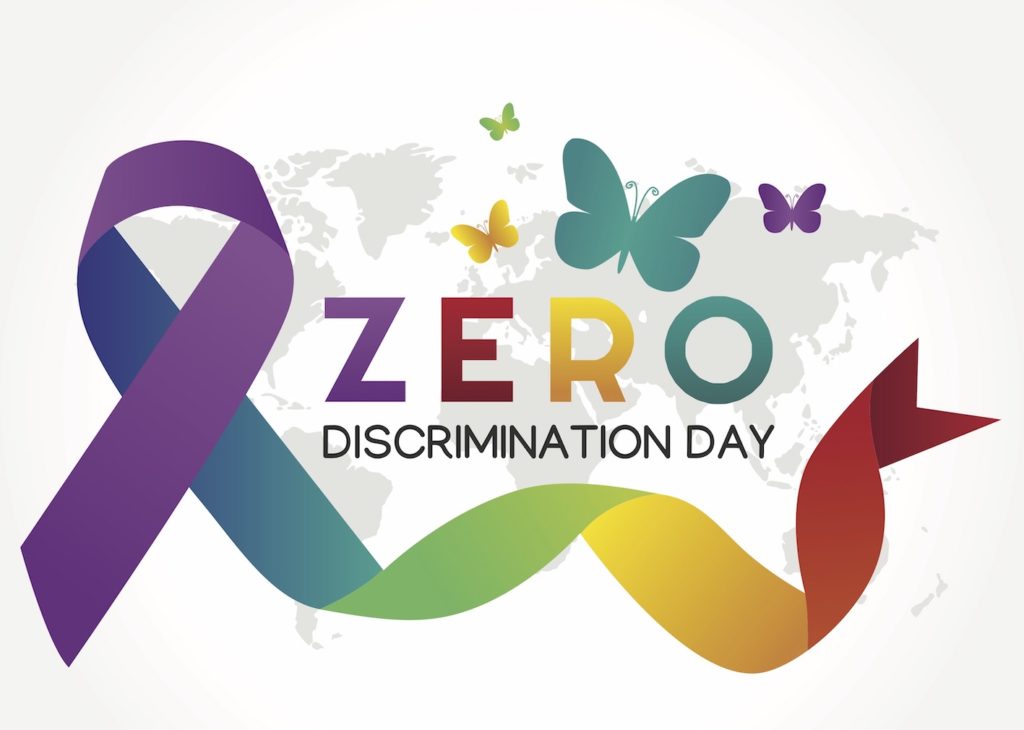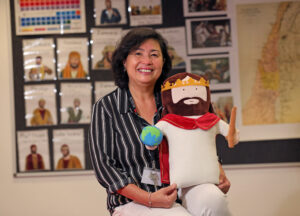Remove Laws That Harm, Create Laws that Empower

Zero Discrimination Day is an opportunity to promote everyone’s right to live a dignified life free from discrimination regardless of age, gender, sexuality, ethnicity, education, and beliefs. Zero Discrimination Day began in 2014 and was launched by the UN Program on HIV/AIDS. The purpose of the day is to reject discrimination loudly and clearly, instead, encouraging compassion and tolerance. Today, 1 March, is a day we pledge to expand our respect for one another.
This year’s theme, ‘Remove Laws That Harm, Create Laws That Empower’, highlights the urgent need to take action against discriminatory laws.
While many countries have laws against discrimination, it is still a daily reality for many people in Australia and worldwide. Discrimination is hurtful and leads to rejection and exclusion from society. Discrimination of any form is a direct violation of a person’s human rights and must never go unchallenged! It is time to put an end to discrimination.
“When you see something that is not right, not fair, not just, you have to speak up. You have to say something; you have to do something."
John Lewis, Civil Rights Leader and Politician Tweet

How do we stop discrimination?
We all have a duty to stop discrimination. As Christian communities we:
- Must be the frontrunners in standing up and speaking out against any form of discrimination.
- Must look at the life of Jesus. Jesus was particularly concerned with the discriminatory behaviour he witnessed towards women, children, and foreigners. These were the people He embraced and went out of His way to include. We must do likewise.
- Must stop paying lip service to anti-discriminatory behaviour and do something.
- Must not stand by and be too afraid to get involved or speak out when you witness discrimination.
- Must encourage the building of respectful relationships with one another, starting with the ones closest to you.
A long way to go
We still have a long way to go to eradicate discrimination. In the meantime, we can practice respectful listening, even when we disagree with the way others speak or what they believe. We have the responsibility to relate to everyone as fellow human beings, not judging them based on our differences.
Let’s stop behaving in hurtful ways that could deepen the prejudice against those who are different. The more strongly we disagree with people, the more careful we need to be to ensure our words are not destructive. Only when attitudes of acceptance and respect are culture-wide can we begin to see a place where every person is valued.
“I came so that everyone would have life and have it in its fullest”. John 10:10

Unlocking the Power of Connection: Dr Mark Williams Inspires Students
After the success of his first visit last year, we were excited to welcome Dr Mark Williams back to talk with our Years 7, 8 and 9 students this week.

Continuing the Journey: Carol Beins Upholds Her Daughter’s Legacy
This year, Carol Beins follows her daughter Shoshanna’s footsteps, journeying the same path as the former Religious Education teacher.

Exploring the Artistic Universe of Isabelle de Kleine (2011)
From childhood, Isabelle de Kleine’s talent flourished, guided by the supportive Art department into the renowned artist she is today.
- Faith, Featured
Author: Santa Maria College
Santa Maria College is a vibrant girls school with a growing local presence and reputation. Our Mission is to educate young Mercy women who act with courage and compassion to enrich our world. Santa Maria College is located in Attadale in Western Australia, 16 km from the Perth CBD. We offer a Catholic education for girls in Years 5 – 12 and have 1300 students, including 152 boarders.







